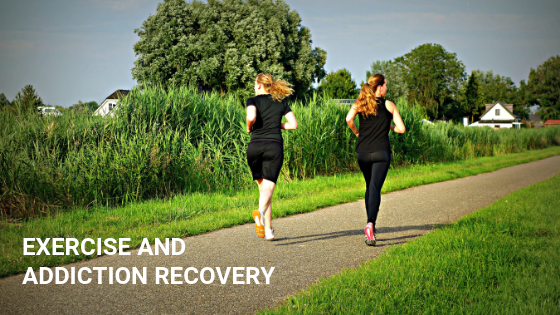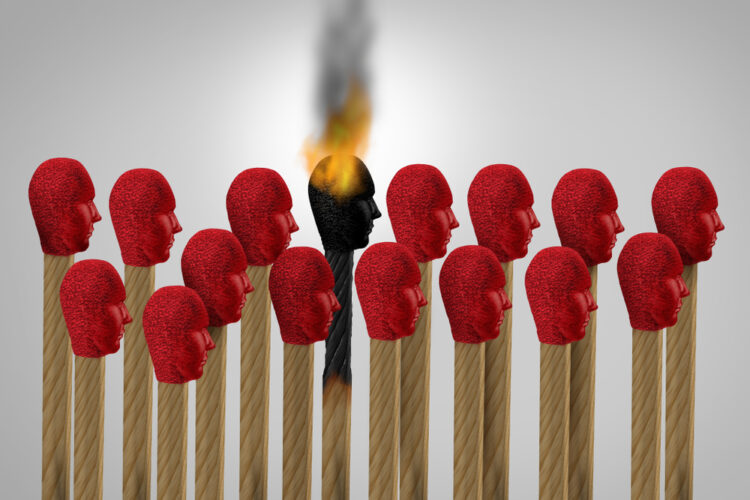
Exercise and Addiction Recovery
Addiction recovery typically involves a lot of counselling, self-help support groups and in general a lot of introspection. Introducing physical activity, regular workouts or an entire exercise regime into the efforts of recovery has been proven to have major benefits to help maintain sobriety. Studies suggest that exercise can lead to a sense of accomplishment; feeling stronger; improved health; and increased confidence in staying clean and sober.
When an addict is trying to recover, their body and mind crave the endorphins that lead to the highly addictive artificial high. A vigorous sweat session can cause the release of those same endorphins, along with endocannabinoids; together these biochemicals can produce a feeling of euphoria, making it easier for someone in recovery to cope with daily life. Additionally it has been shown to increase the number of new nerve connections in the brain, which helps it heal from the effects of substance use. Although the ‘high’ one feels is most certainly less intense than the effect of drugs or alcohol, exercise does provide a pleasurable release for many people without any of the destructive side effects. Research has also shown that being physically active helps to stave off type 2 diabetes, heart disease and some kinds of cancer, as well as an immunity boost.
If you have not traditionally been an active person, start small. Consider simply going for a walk each day. Slowly build up to running or a attending a gym. Later you can enlist a workout friend that can help to keep you motivated. Exercise fills up your time in a good way. When you prioritize physical activity it purposefully eats up part of your schedule. Working out regularity can introduce a focus to your life, allows you to live in the present. It keeps boredom and unhealthy cravings at bay. Often it is difficult to get the inertia to force yourself to go for a run or a workout. In this case consider the post-workout benefits: increased energy, better mood, reduced stress, clearer thinking. As you add more time and/or intensity to your regimen, you’ll see the physical and mental health benefits that come with it and you’ll start to feel stronger and more competent in other areas of your life, including your ability to meet the challenges you’ll face in recovery.
As mentioned exercise helps you sleep more soundly. Addiction is known to disrupt many body processes, including circadian rhythms, making it difficult to fall asleep or sleep uninterrupted without using drug of choice. As your body gradually returns to a healthier, balanced state, a normal sleep cycle will allow your body to heal faster.
It’s common for recovering addicts to have trouble dealing with rage and feeling frustrated and expressing these emotions in unhealthy ways. Going for a run, lifting weights or even hitting a punching bag can help you manage anger and frustration without relapsing. Additionally, an exercise routine can become your go-to tool to reduce stress, regain composure and weather a crisis or rough periods.
One note of caution is that recovering addicts are susceptible to “substitute addiction or addiction transfer,” which means replacing one addiction for another. Many have fallen into that trap with exercise, so if you find yourself obsessing or over doing it, it may be worth considering limiting your workout time and talking to someone about it. By being aware and proactive about substitute addiction you can use exercise to your advantage.
Exercise can be a tremendous benefit during and after recovery. At Ibiza Calm, we have an expert team of professionals available at all times for any number of addictions you or a loved one may be suffering with, so please do not hesitate to call us if you need any help or advice.
(SPAIN) +34 664 443 433 (UK) +44 203 868 5710
Share this information, choose your platform!
5 Tips for Maintaining your Recovery whilst Self-Isolating
Social distancing and self-isolation can be a struggle for anyone, but for those with in recovery this period of quarantine can be particularly difficult. You may feel like you’ve lost your sense of routine, feel disconnected with your support network. …
5 Signs of burnout
Burnout was previously deemed to be the misfortune of stressed-out corporate executives, worn-out movie stars and ageing celebrities. However, in recent times, and especially given the events of the last two years; with a global pandemic ravaging the world and …
The role of social media in eating disorders
Many studies have been done on the link between the media’s portrayal of the perfect body image – that of a thin female and muscular male – and the ever-growing obsession with body size; the unhealthy and sometimes dangerous weight-loss …
Are anxiety and depression the same?
The terms anxiety and depression are frequently used when talking about mental health. Since these are two of the most commonly occurring psychological conditions in the world, then that is to be expected. But what are they? And are they …









